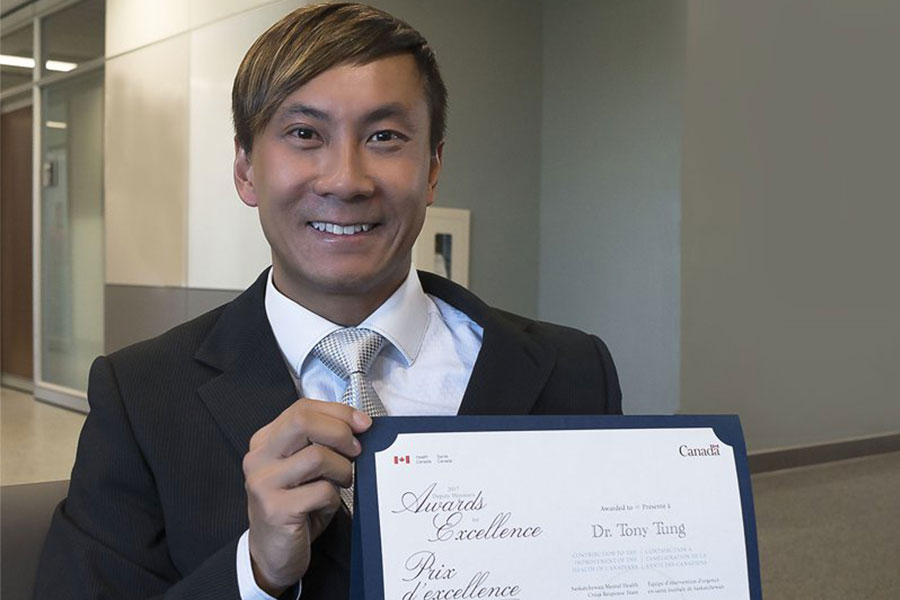
Nursing staff receives Deputy Minister’s Award for Excellence
Tony Tung, director of continuing education and development for nurses (CEDN), has received the highest honour given to Health Canada employees.
By University CommunicationsDuring his employment with the First Nations and Inuit Health Branch (FNIHB), Tung served as a member of the Saskatchewan Mental Health Crisis Response Team, a team that was deployed to Northern Saskatchewan during the suicide crisis of 2016.
“After the initial three suicides occurred in Stanley Mission, our team at FNIHB was sent to the Stanley Mission Health Centre to provide immediate relief for those individuals who had been working tirelessly at the nursing stations following the suicides,” said Tung. “I completed a rotation of about ten days, went home for a week and went back for another ten. In addition to providing relief for the nurses, we also provided immediate medical support for those individuals considering self-harm themselves.”
As a nurse practitioner with an interest in mental health, Tung was drawn to helping those in Northern Saskatchewan. “Mental health struggles are real and need to be talked about—the stigma must be removed. Health care professionals with a background in mental health need to work closer with those in primary care to make sure everyone has access to assessments, referrals and treatment, no matter where they live. Those who live in remote northern communities are isolated and often don’t have access to the supports they require. I feel very passionate that ongoing strategies, not just emergency support, must be put in place to prevent something like this from happening in the future.”
In the case of the suicide crisis in northern Saskatchewan in 2016, the individuals who took their lives were youth. “Education, career development and the proper tools for intervention when a teen is considering self-harm are of utmost importance to prevent something like this from happening again. Everyone needs to be part of the solution. Everyone needs to talk about it. But talking isn’t enough. Putting a focus on strategic planning around mental health services, in particular in isolated communities is great, but actions must follow the planning.”
Tung is now the Director of CEDN with the College of Nursing and feels it is important CEDN finds a way to offer additional mental health training for primary care nurses, in particular those who practice in isolated communities.
“It is very hard to explain how I felt when I worked in Stanley Mission during that heartbreaking time. The community was so welcoming; it took me back to the reason I became a nurse to start with—to use my training to do meaningful work. However, I also know the nurses who are dealing with the challenges that these northern communities face on a daily basis will never be the same. They need access to additional mental health training to effectively do their jobs. My hope is to offer this type of training online in the near future, so these nurses feel better equipped to assess and treat individuals struggling with mental health.”

